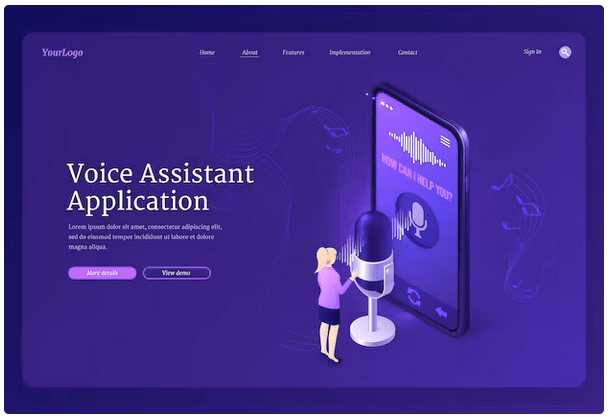
The Role of AI in Government Decision-Making

In an age of technological advancements, governments worldwide are exploring innovative solutions to enhance their decision-making processes. One such innovation with the potential to revolutionize government operations is artificial intelligence (AI). AI technologies are becoming integral tools for government agencies, offering the promise of improving efficiency, transparency, and overall governance. In this blog, we will delve into the latest trends, key insights, and practical tips related to the role of AI in government decision-making, highlighting its potential and challenges.
The Role of AI in Government Decision-Making
1. AI-Powered Data Analysis
AI tools are equipped to process vast amounts of data quickly and accurately. Government agencies can harness this capability to analyze data related to public services, infrastructure, and more.
2. Predictive Analytics
Predictive analytics using AI can help governments anticipate trends and allocate resources more effectively. For example, predicting disease outbreaks and optimizing healthcare resource allocation.
3. Enhanced Public Services
AI can improve the delivery of public services. Chatbots and virtual assistants can provide citizens with instant support and information.
The Challenges and Considerations
1. Privacy Concerns
Using AI in government raises concerns about the privacy of citizens’ data. Balancing the benefits of data-driven decision-making with privacy rights is a significant challenge.
2. Bias and Fairness
AI algorithms can inadvertently perpetuate biases. It’s crucial to ensure that AI systems are fair and do not discriminate against any demographic.
3. Transparency and Accountability
Maintaining transparency in AI algorithms and decision-making processes is essential to build trust with the public. Citizens should have insights into how and why certain decisions are made.
Practical Implementation Tips
1. Ethical AI Guidelines
Government agencies should establish clear ethical guidelines for AI use, outlining the responsible application of AI and adherence to ethical principles.
2. Data Security
Robust data security measures must be in place to protect sensitive information. Encrypted storage and controlled access can mitigate data breaches.
3. Public Engagement
Engaging with the public and collecting their input on AI implementations can provide valuable insights and build trust.
Real-World Examples
Several countries have embraced AI in government decision-making:
1. Estonia – E-Residency Program
Estonia’s E-Residency program uses AI to streamline processes, making it easier for anyone to become a digital resident and access government services online.
2. Singapore – Smart City Initiatives
Singapore has launched AI-driven smart city projects, including traffic management and public safety enhancements.
3. Canada – Healthcare Decision Support
Canada uses AI to assist healthcare professionals in making complex clinical decisions, improving patient care.
The Path Forward
AI’s role in government decision-making is still evolving, and the path forward involves addressing challenges, establishing clear guidelines, and ensuring that AI benefits all citizens. As governments increasingly adopt AI technologies, the need for responsible, transparent, and ethical governance becomes paramount. The future of government decision-making is undeniably intertwined with the potential of AI, and it’s a journey that holds great promise for more effective, efficient, and citizen-centric governance.
Conclusion
This blog post provides an in-depth exploration of the role of AI in government decision-making, highlighting the transformative potential of AI technologies while addressing the challenges and considerations essential for ethical and transparent governance. As governments continue to navigate this technological frontier, the responsible use of AI will play a pivotal role in shaping the future of governance.
Frequently Asked Questions
1. What is the role of AI in government decision-making?
- AI plays a crucial role in government decision-making by enabling data-driven insights, predictive analytics, and automation of routine tasks, leading to more informed and efficient governance.
2. How does AI enhance data analysis in government operations?
- AI enhances data analysis by processing and interpreting vast amounts of data quickly, allowing governments to make data-informed decisions across various sectors.
3. What are the real-world applications of AI in government decision-making?
- AI is used in various applications, including predictive analytics for resource allocation, chatbots for citizen services, and data-driven policy recommendations.
4. What challenges does the use of AI in government decision-making present?
- Challenges include concerns about data privacy, potential biases in AI algorithms, and the need for transparency and accountability in AI-driven decisions.
5. How can governments address privacy concerns related to AI in decision-making?
- Governments can address privacy concerns by implementing robust data protection measures, ensuring data security, and adhering to privacy regulations.
6. What is the importance of fairness and non-bias in AI-driven government decisions?
- Fairness is vital to prevent AI algorithms from discriminating against certain demographics. Ensuring non-bias is essential for ethical and equitable governance.
7. How can governments maintain transparency in AI decision-making processes?
- Transparency can be maintained by providing insights into how AI algorithms work, disclosing the data used, and involving the public in decision-making processes.
8. What ethical guidelines should government agencies follow when using AI in decision-making?
- Government agencies should establish ethical guidelines that outline the responsible and ethical use of AI, ensuring decisions align with ethical principles.
9. How can governments engage with the public to collect input on AI implementations?
- Public engagement can be facilitated through open forums, public consultations, and feedback mechanisms, allowing citizens to have a say in AI-driven decisions.
10. What are some examples of countries successfully implementing AI in government decision-making?
- Countries like Estonia, Singapore, and Canada have adopted AI in government operations. Estonia’s E-Residency program, Singapore’s smart city initiatives, and Canada’s healthcare decision support systems are notable examples.



